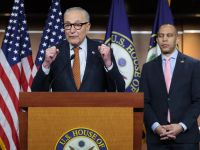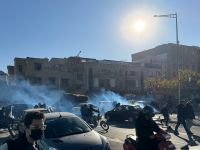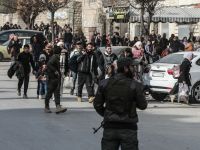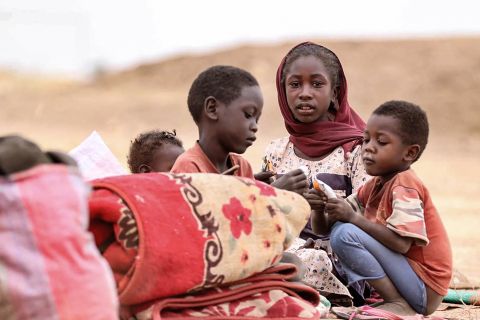General Data
Population 5.4 million (1999)
Religions 99% Sunni Muslim; 100,000 Christians (Greek Orthodox, Armenian and Catholic)
Government Constitutional Monarchy
Languages Arabic (English is widely spoken)
Work Week
Public Sector:
Saturday - Thursday
8:00 - 14:00
Commercial:
Saturday - Thursday
8:30 - 13:00; 15:30 - 19:30
Banking:
Saturday - Thursday
8:30 - 12:30
-Monetary Unit Jordanian Dinars (JD)
-Exchange Rate JD 0.71/US$ 1
Current Political Climate
Shortly before King Hussein’s death in early 1999, the late Monarch selected his son Abdullah as the new heir and abruptly ousted his brother, Hassan, from the position he had occupied since 1965. Sources indicated that Hussein was discontent with his brother’s behavior during his absence. According to these quarters, while the King was undergoing cancer treatments in the United States, Hassan conducted himself as “more king and less heir.”
In Abdullah’s first year as Jordan’s ruler, he has won accolades both at home and abroad with his policies. He has managed to repair Jordan’s relations with Arab states such as Syria, Kuwait and Saudi Arabia. Although Gulf assistance to Jordan and remittances from Jordanian workers in the Gulf may never again regain their stature of the 1980s, there is now scope for closer commercial cooperation, which would favor Jordanian exports.
Abdullah has also created a role for himself in the regional peace process as intermediary between Syria and Israel. He has endeared himself to his people by rooting at soccer matches and by mingling with citizens, often undercover, to discover what is occurring among his populace and to experience the bureaucratic annoyances afflicting the Kingdom’s fragile economy and quality of life.
Additionally, the monarch has taken bold initiatives to combat potentially threatening internal opposition elements. In mid-September 1999, indigenous authorities arrested 3 senior Hamas officials as they attempted to return from Iran. This followed the August 30 raid of Hamas offices in Amman and arrest of several of the radical movement’s officials. Hamas constitutes the main opposition to Palestinian Chairman Yasser Arafat.
Jordanians are increasingly frustrated with the lack of progress in the peace process, claiming that Israel hinders Jordan’s trade with the Palestinians (presently this trade volume does not exceed $23 million annually.) Another source of anxiety between Jordan and Israel is over water. According to the peace treaty, Israel is obliged to supply Jordan with certain annual quantities of water. Last winter’s drought has caused Israel to announce that it could no longer completely fulfill its commitments. This delicate issue will be a serious test-case for the two countries.
The government is committed to improving the nation’s infrastructure in order to support new investment and continued economic growth. Jordan is in the process of liberalizing its investment and customs laws in an effort to attract foreign investment. Foreign investors are now allowed to invest in Amman’s stock market and in its financial markets.
On January 15, 2000, Jordan's Prime Minister Abdul Rauf al-Rawabdeh reshuffled his 24-member cabinet appointing seven new ministers and dismissing six others. The key portfolios of foreign affairs, interior, finance and planning all remained unchanged. Officials have indicated that the new ministers are mostly technocrats who will boost the government's drive for economic reforms in accordance with IMF recommendations. The new Trade Minister, Mohammed Halayqah, is a former official who was credited with securing Jordan's entry to the World Trade Organization last month. Mr. Halayqah has already announced that one of his key priorities is to promote Jordanian exports.
An even more significant political alteration took place two days earlier when King Abdullah appointed Fayez Tarawneh as new royal court chief, replacing Abdul Kareem Kabariti. The royal court chief, one of the most influential posts in the Kingdom, is responsible for managing daily affairs of the royal family and serves as de facto liaison officer between the Monarch and the government. Unlike Kabariti, who supported accelerated free market reforms, Tarawneh believes that the government should garner as much solid support as possible for controversial reforms.
The government reshuffle is aimed at assembling widespread support for the Rawabdeh-led cabinet, which has recently launched a series of contentious social, economic and administrative reforms. The Prime Minister has been the subject of attacks from the public and opposition parties for his attempts to privatize major state-owned enterprises, his crackdown on Muslim dissidents, and his decision to levy a 10 percent consumption tax, which triggered a subsequent price hike.
Moreover, Rawabdeh is encountering fresh charges that he knew of bribes solicited by his son, Issam. Mahmoud Kharabsheh, head of the House Legal Affairs Committee, has alleged that Issam demanded a $21 million bribe from two Gulf nationals who sought to invest $100 million to construct a tourist village near Queen Alia Airport. Rawabdeh has denied that he was aware of any such occurrence, but has vowed to resign if the house of deputies proves such allegations to be true.
Kharabsheh first brought up this charge during the latest 2000 budget debate, whereby other deputies urged the government to combat high-level corruption, abuse of public funds and nepotism among senior government officials. The government has promised to enhance transparency as part of its IMF-guided reform agenda. But parliament has yet to pass a controversial law that obliges senior government officials to declare their sources of income.
© 2000 Mena Report (www.menareport.com)








